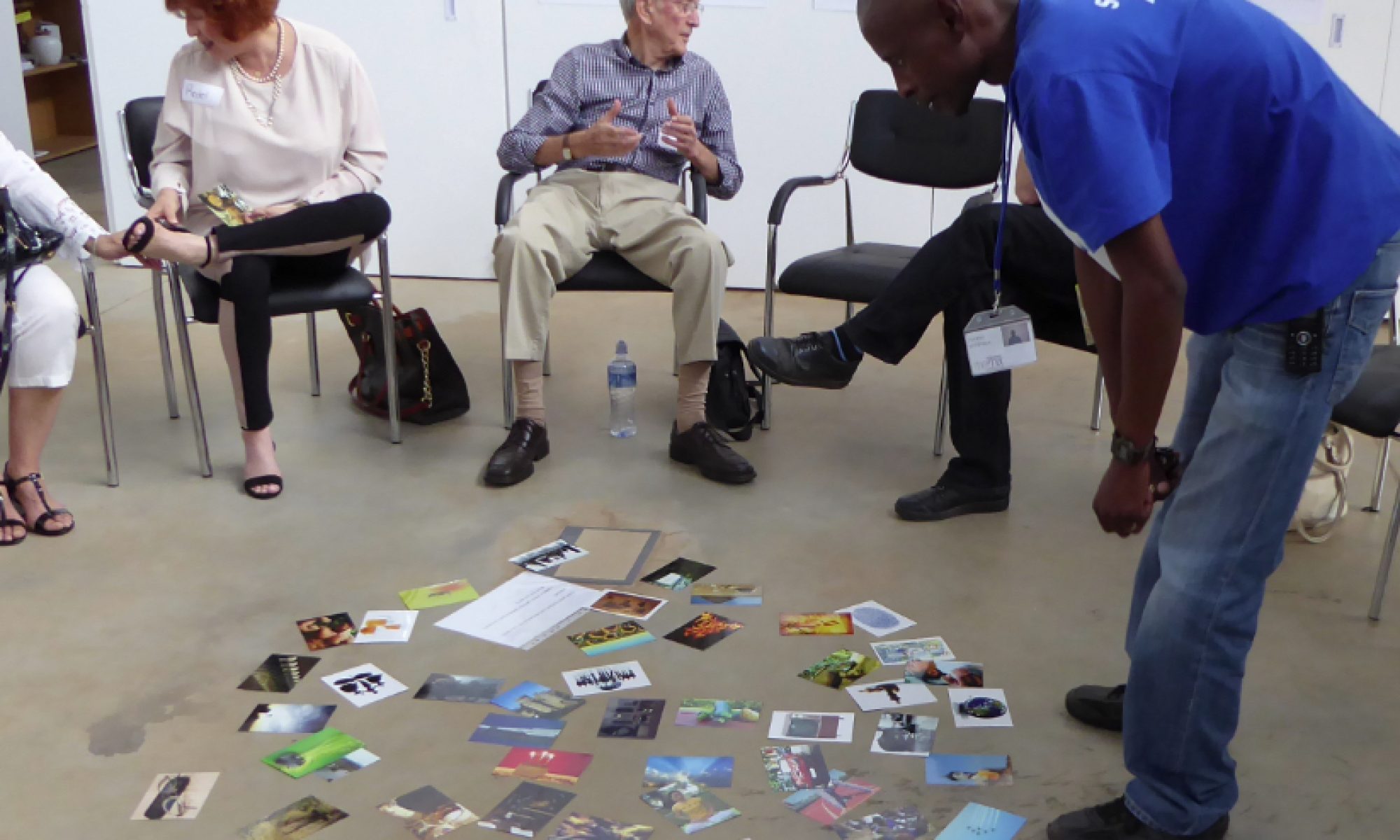Session at Applied Improvisation Network conference
(update: Literatur on Emodiment also in online rooms, WriteUp of the session; and a video of the session – see this post)
My friend and collaborator Christian and I will be presenting a session at the Applied Improvisation Network’s annual conference next Sunday 27 August. To me it is a kind of dream come true. This will be the third time I attempt to attend the AIN conference in some way. The last two attempts failed because for various reasons I was unable to make the trip. This year, though, Christian and I solved half the problem.
We will be attending the conference from the comfort of our home offices.
He is in Austria, I am in South Africa and we will meet together online and on screen to present a conference session in California!
I say half the problem, because, while we get to present and interact for an hour, we still do not get to attend and connect with all the other wonderful contributors and players. Next time!
Our topic: How does one use embodiment in online rooms?
Over the past two years Christian and I have been offering online pig catching sessions and learned a number of important principles for doing embodied exercises online. I have colleagues who do not believe it can be done and when I challenge them, they say: “I am sure something essential gets lost.”
Well, we have found that there is a unique kind of intimacy that develops online when people play together – a kind distinctly different in quality than when you work with someone offline. Part of the reason is because you see yourself on the screen interacting and this creates a certain vulnerability that adds to the connection.
To engage the imagination through the body requires some innovation when working online. We found ways to use the unique feature of online rooms to access the imagination and people’s creativity in fresh and unexpected ways.
We have discovered how to contain the work when there is no physical room within which to contain activities and relationships.
We have found out how to bridge the divides between participants and build playfulness and connection in new ways.
All these insights will be shared at the conference on Sunday morning and I look forward to sharing some of the principles here in a blog or two soon.
For the curious, here is our conference abstract:
An important aspect of Applied Improvisation is using and perceiving the body: your own and those of others in the room. It therefore seems logical, that “room” is a physical construct, a place with enough space to move and also to rest.
In a connected world “rooms” in the World Wide Web are part of the reality of more and more people: 3,6 Billion people have direct access to the internet, which is about half of the world population. Especially in Europe (over 70 percent of the population) and North America (nearly 90 percent) using the Internet is a part of daily life. An important aspect in the still growing numbers of direct users is mobile access to the internet via smart devices.
Internet “rooms” are used more and more often to learn together, to plan projects and them into action step by step. Topics are not only “tech related” – they are also about facilitating, coaching, developing various kinds of people, individually and in groups. Live online tools are often used in these contexts. They enable participants to hear and see each other. Nonverbal communication is a key aspect of Applied Improvisation. It is also a key aspect of live online rooms.
In our contribution we will summarize studies on using embodiment in settings enabled by technology. We will present different improvisation methods that can be used in online settings highlighting its effects on collaboration and interaction on one hand and and on personal development on the other.
Facilitators
Dr. Petro Janse van Vuuren, petro@playingmantis.net, Playing Mantis and Drama for Life, University of the Witwatersrand, Johannesburg, South Africa. Applied drama researcher and practitioner, coach and consultant.
Christian F. Freisleben, christian.freisleben@improflair.at, Halftime: St. Pölten University of Applied Sciences (Didactics in Higher Education, E-Learning); teacher, trainer, journalist in the fields of education, health care and social affairs
[1] Http://www.internetworldstats.com/stats.htm (14. 11. 2016)

